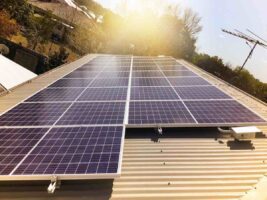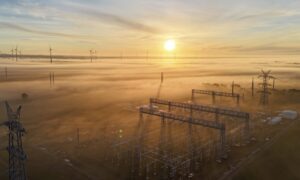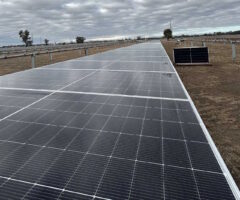Dr Zhengrong Shi, the solar PV pioneer once dubbed the “sun king” and who became the solar industry’s first billionaire through his company Suntech, has unveiled plans to build a big manufacturing centre in Australia to make his Sunman flexible solar panels.
Dr Shi first unveiled the Sunman flexible solar panels in 2017, and the company now has two large manufacturing facilities – a 1 GW facility in China unveiled in 2022, and a smaller 500 MW facility that is under construction in Indiana in the US.
Sunman, through its local subsidiary Energus, is now looking to build a 500 MW manufacturing facility in Newcastle, NSW – the world’s largest coal port – and hopes to tap into the federal government’s Solar Sunshot and Future Made in Australia programs to support it.
Australian universities have led the world in the development of solar PV technologies, and trained many of its leading scientists and engineers, but it is China that now dominates the world’s solar PV manufacturing industry because of its ability to build at scale and lower cost.
“We went to China to build first company Suntech, and there were many comments about why Australia didn’t support Dr Shi and let him go to China,” Dr Shi told Renew Economy in an interview.
“Perhaps it was too early to do it here. But I think now it is time to come back and build this.”
Australia is looking to reduce its dependence on what amounts to a single supplier, and create its own supply chain under the Solar Sunshot and Future Made in Australia initiatives.
A number of other proposals are already emerging, including Quinbrook’s planned silicon plant in north Queensland, the potential of SunDrive to build its unique solar PV technology that replaces silver with copper, and the expansion of local players such as Tindo Solar and 5B.
Dr Shi says there is no doubt that Australian manufacturing costs are higher than those in China, but maybe not as high as many believe.
“In the US, manufacturing costs are 15-20 per cent higher than in China,” he says. “The IRA (Inflation Reduction Act) provides a manufacturing credit that reduces that difference. I think the Sunshot program can help reduce that margin too.”

The flexible solar panels are designed to be installed where traditional solar modules cannot, because of their weight.
The Sunman panels do not have aluminium frames, do not have glass, and are 70 per cent lighter, which means they can be installed on large commercial and industrial rooftops – whose owners are generally hungry for solar capacity – that cannot support traditional solar modules because of their weight.
The technology also uses bonding, which means no holes need to be drilled into rooftops and risk damaging waterproof polymers, and also protects the modules from the lifting force of strong winds. They can also be installed on surfaces that are not flat, making them suitable for trains and boats.
Sunman describes the proposed facility in Newcastle as a “lighthouse project” that will advance Australia’s solar manufacturing capabilities and foster innovation in the renewable energy sector.
“Importantly, the eArc ultra-lightweight module does not compete directly with traditional heavy glass modules and thus is not subject to the low margin or loss making ‘race to the bottom’ that the industry is currently observing,” its project document says.
“This aggressive price competitiveness among glass PV modules is due to a glut, with supply thought to be approximately double the current global demand.
“In contrast, eArc modules have developed a competitive advantage through the lightweight, flexible design, which allows the module to service markets that cannot use glass modules.
The facility is proposed for the Hunter Business Park in Blackhill, and will support 200 manufacturing jobs. Dr Shi says it could also support traditional module manufacturing and become the centre of a solar innovation hub.
Dr Shi’s Sunman is backed by Australia’s Clean Energy Finance Corporation and Southern Cross Venture Partners, which manages the Renewable Energy Venture Capital Fund on behalf of ARENA, and Softbank China.








